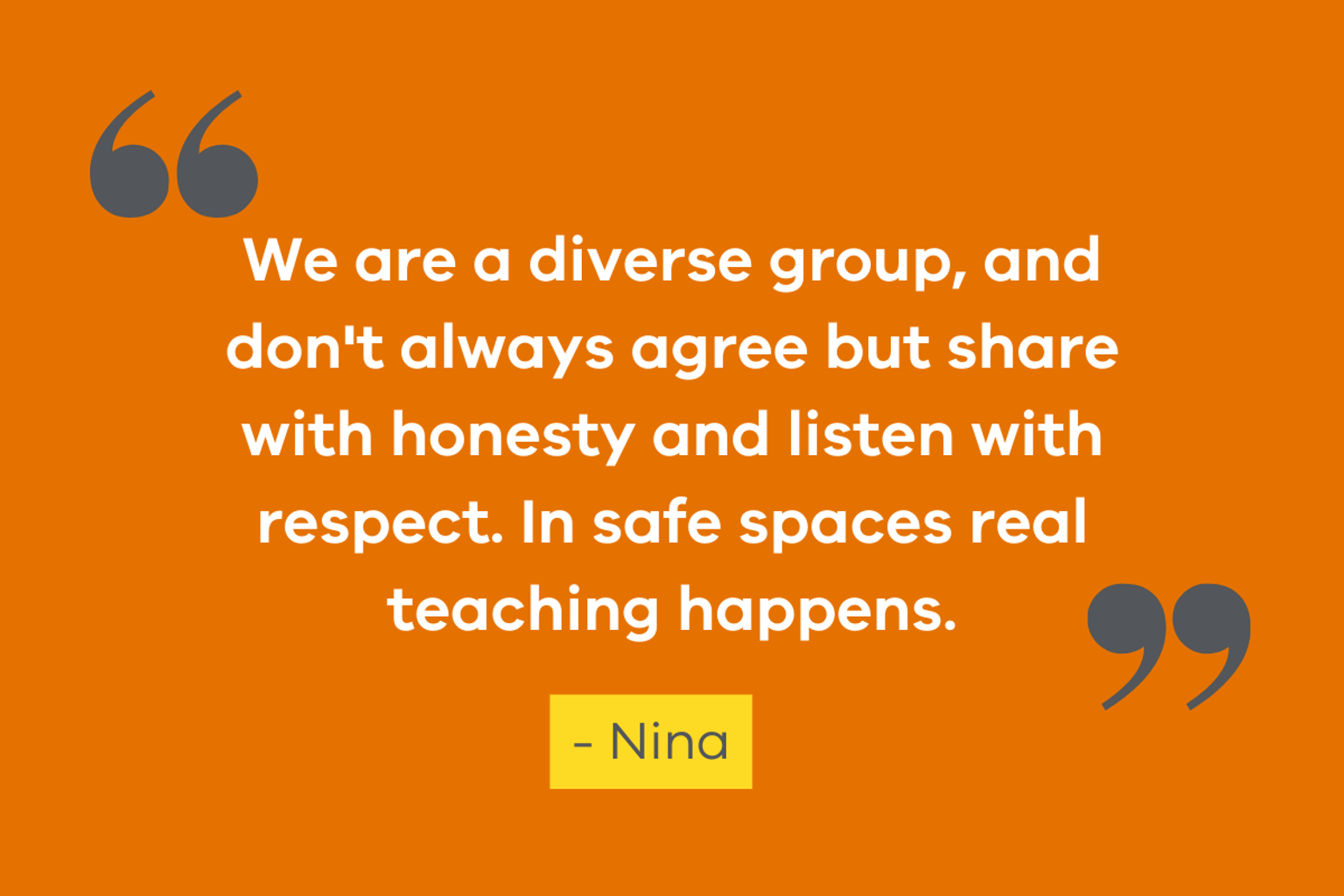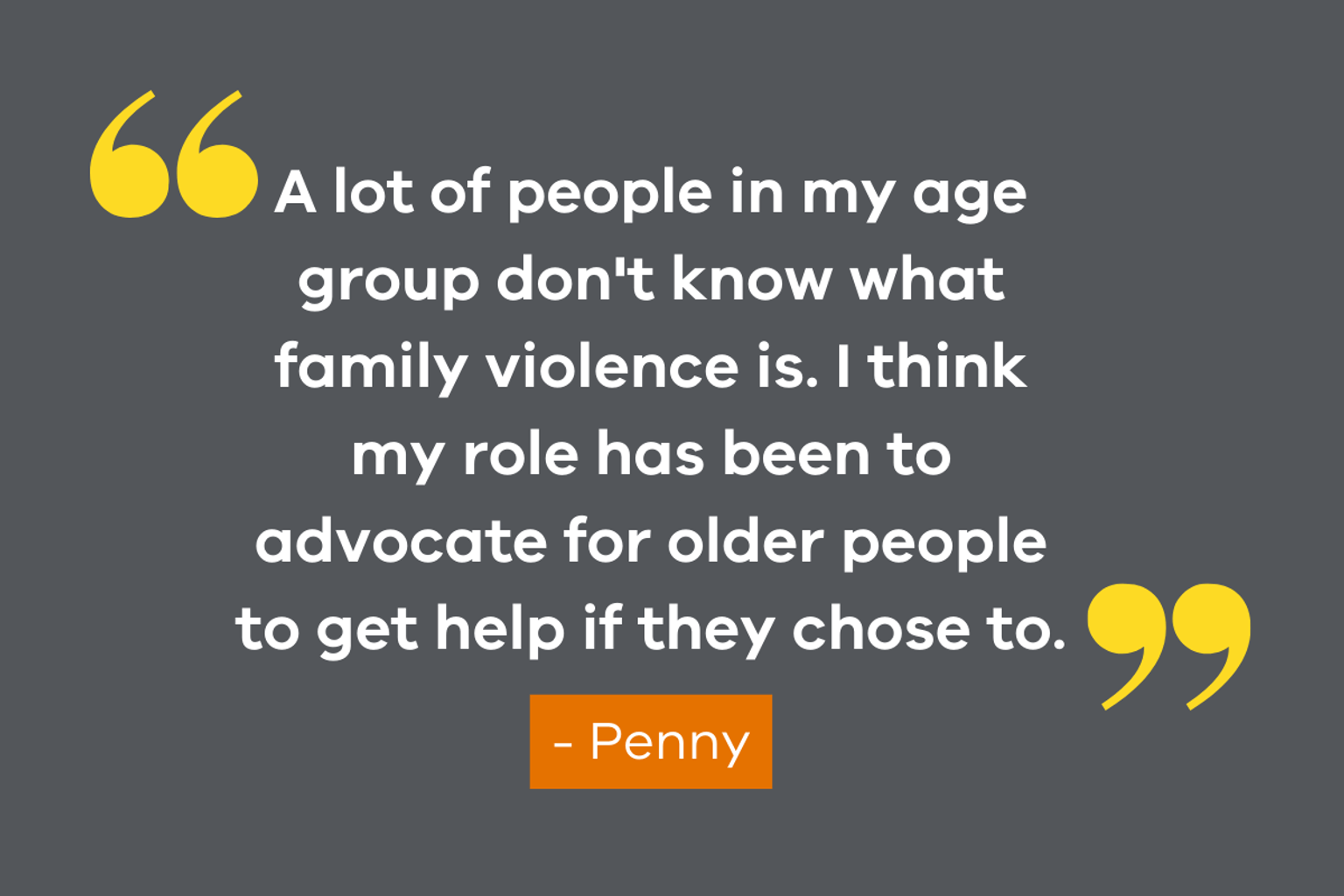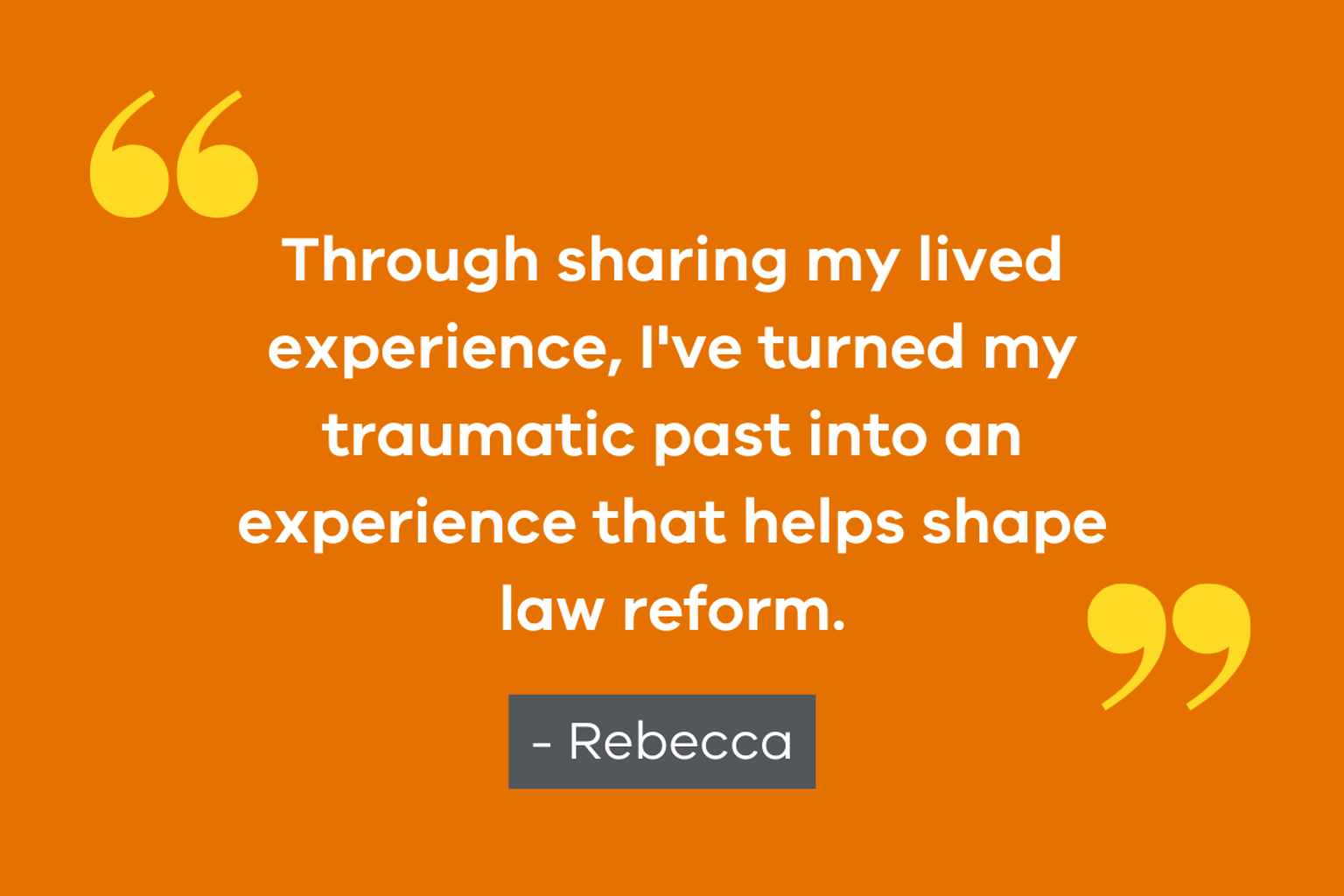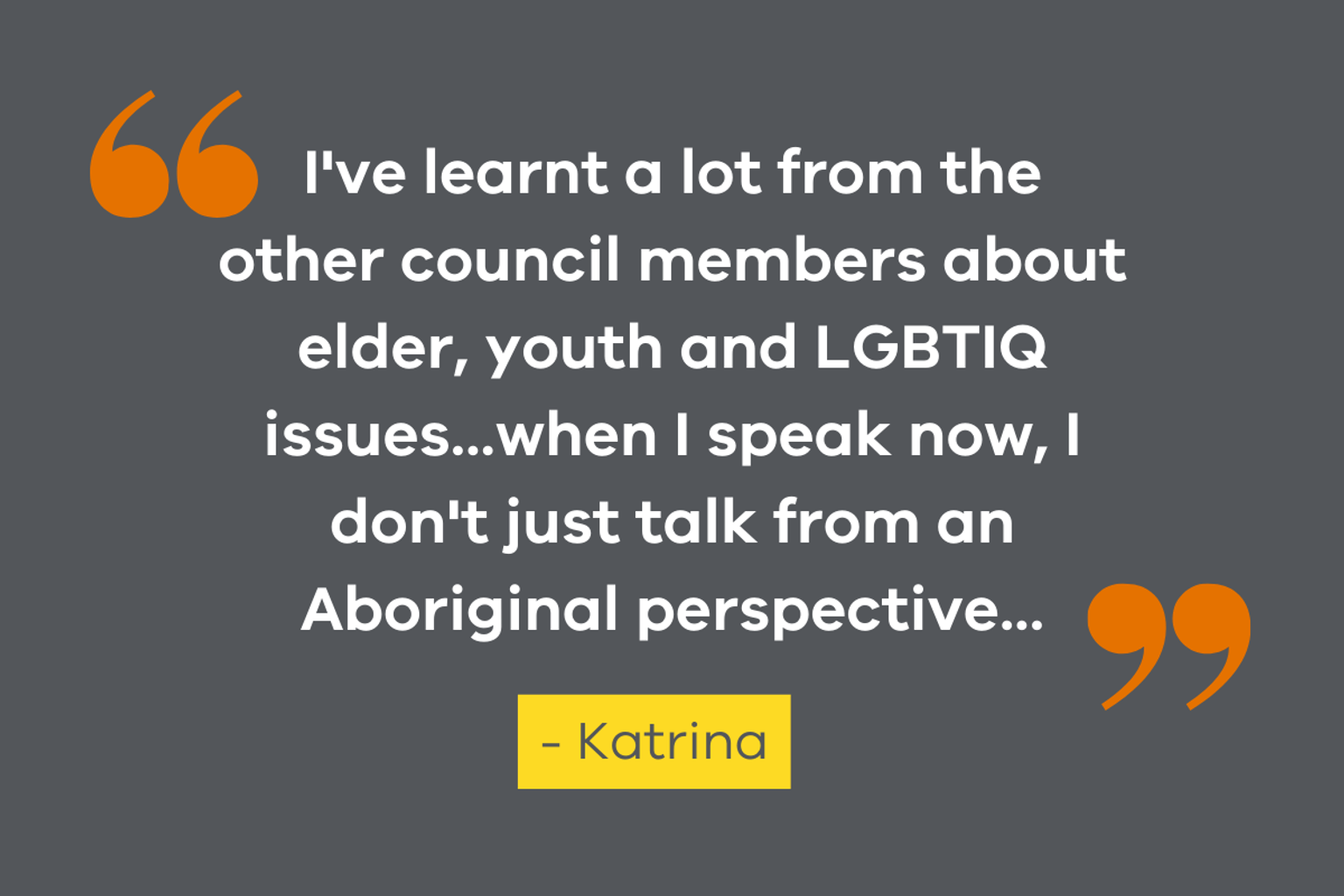The Victorian Government conducts an Expression of Interest (EOI) process to recruit new VSAC members every 18 months.
The last recruitment round was held in 2025, with eight new members recruited for the for the period September 2025 to September 2028.
The next EOI process will open in late 2026. Please complete this form(opens in a new window) with your name and email to be notified.
Resources including the role of a VSAC member, the Council’s Terms of Reference, and the recruitment process can be found on this page.
Victim Survivors' Advisory Council (VSAC)
The Victim Survivors’ Advisory Council (VSAC) provides formal advice to the Minister for Prevention of Family Violence and other decision-makers on service design, policy development and law reform to better prevent and respond to family and sexual violence in Victoria.
New VSAC members will join seven existing members who will support and mentor new members as they transition onto the Council.
Membership of the Council is drawn from different ages, genders, demographics, and communities across Victoria, in order to reflect the diversity of the Victorian community.
Please review the information below to confirm your eligibility and readiness before applying.
The role of a VSAC member
As a VSAC member you will:
- bring your lived experience expertise to inform the next phase of the Victorian family and sexual violence reforms
- provide advice and insights to the Victorian Government to influence the development and design of services, policy and systems
- work collaboratively to strengthen the family and sexual violence system for victim survivors, hold perpetrators to account and prevent violence from happening in the first place.
VSAC formal meetings are held either online or in-person six times per year. This is the primary forum for members to provide advice to government and other key stakeholders. In addition, there are regular optional opportunities for members to contribute to a wide range of projects, consultations and other engagements outside of the formal meetings.
VSAC members are paid for their time and expertise. Refer to the payment schedule below.
VSAC membership can remain confidential. For instance, some previous members have used pseudonyms while on VSAC to protect their safety.
In 2020–22 previous Council members were asked about the most significant change they had experienced as a VSAC member. In the below video, members outline the impact their lived experience has had on the family violence system, and share stories about their own professional and personal growth.
Selection process
The selection process will be guided by a range of factors including:
- an ability to translate lived experience of family violence and the Victorian family and sexual violence system into advice for the government on systems change, policy development, law reform and service design
- willingness to work as a member of a team, including listening to and respecting different perspectives, being open minded and curious, and collaborating to form collective positions on key issues
- an interest in growing both professionally and personally, through exposure to diverse issues, new perspectives and change processes. This includes developing a strong understanding of how the VSAC advisory role interacts with government and the broader family and sexual violence system.
We encourage applications from women, men, transgender and non-binary people, members of the LGBTIQA+ community, adults of all ages, Aboriginal people, people with disability, people from multicultural and multi-faith backgrounds, new migrants.
We also encourage representation from people living in regional and rural Victoria, family members who have lost relatives to family violence, and people who experienced family violence as a child or young person.
Eligibility
You can apply to be on VSAC if you:
- have lived experience of family violence
- are aged 18 years or over
- live in Victoria
- have the time and ability to attend regular 4-hour meetings during business hours, read papers and participate in occasional out of session engagements
- have access to safe email, phone, and a computer with a camera for online meetings (let us know if you need IT help).
You don’t need a driver’s licence.
During the application process, you will be invited to disclose personal information about yourself. You are not obliged to disclose personal information if you do not choose to, but it can help us understand how we can support you through the recruitment process and beyond. We invite you to tell us if you identify as Aboriginal, a person with disability, from a culturally or linguistically diverse background, LGBTIQA+, or a young person aged under 25 years old.
If you have any questions about your eligibility or require help with the application process, you are welcome to contact our team to discuss how we can support. Sharing this information will help you access support should you need it and will also help us to better understand the impact of our work.
Key dates
Applications for VSAC are currently closed. Key dates for applications will be published closer to the time of applications opening, in late 2026.
Frequently asked questions
Please find below responses to some of the most commonly asked questions about VSAC membership.
If you have any more questions, email: engage@familysafety.vic.gov.au.
Application process

1. Check your eligibility and complete the self-reflection tool
You can reflect on whether you are ready to participate on VSAC by completing the self-reflection tool below.

2. Submit your Expression of Interest
Expressions of interest are currently closed and will open again in late 2026.

3. Suitable applicants will be invited for an interview

4. If you are successful, your application will be presented to the Minister for Prevention of Family Violence for her consideration.
Members are formally appointed by the Minister for Prevention of Family Violence for a 3-year term.
Probity checks
In line with the Victorian Government’s appointment and remuneration guidelines, probity checks (including a criminal record check) will be undertaken for all appointments to an advisory council, including reappointments.
These checks will be undertaken for preferred applicants only.
A Declaration of Private Interests will also be completed by new appointees and reappointed members to identify real or perceived conflicts of interest that could pose risk to the operation of VSAC. Family Safety Victoria will support applicants to undertake these checks, including payment.
FSV recognises that many people in the criminal justice system have experience of family and/ or sexual violence. This is particularly so for women who have committed offences, who are often victim survivors themselves.
Government is committed to hearing the perspectives of people who have been through the criminal justice system. This includes people who may have been misidentified as the predominant aggressor in family violence situations.
We encourage you to contact us to discuss your personal circumstances, as a criminal record does not necessarily preclude your participation on the Council.
A reminder that you are not obliged to disclose personal information if you do not want to, but it can help us understand how we can support you through the recruitment process and beyond.
Contact information
Family Safety Victoria coordinates government's engagement with VSAC and provides secretariat support to the council. If you have any questions about the roles, process, safety or privacy, please contact engage@familysafety.vic.gov.au or call the VSAC Secretariat on 03 9500 3279 for a confidential conversation.
If you would like help understanding this information or would like to receive it in another format:
- phone: 03 9500 3279, using the National Relay Service 133 677 (if needed)
- email: engage@familysafety.vic.gov.au
Support services
The Victorian Government acknowledges victim survivors and honours those tragically killed as a result of family violence. We keep at the forefront of our minds those who are experiencing family violence, and who have lost a loved one from violence.
If you are experiencing family violence or at risk of family violence, support is always available.
Updated



